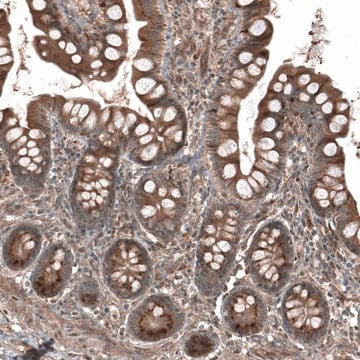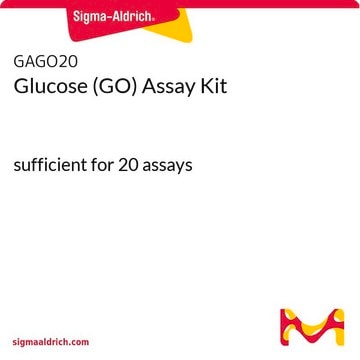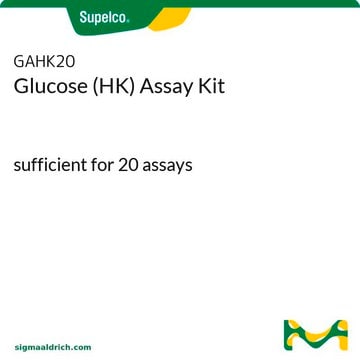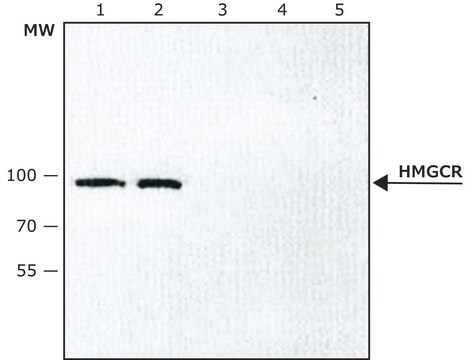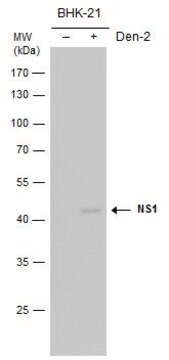MABS1233
Anti-HMG-CoA Reductase Antibody, clone IgG-A9
clone IgG-A9, from mouse
Synonym(s):
3-hydroxy-3-methylglutaryl-coenzyme A reductase, HMG-CoA reductase
About This Item
Recommended Products
biological source
mouse
Quality Level
antibody form
purified antibody
antibody product type
primary antibodies
clone
IgG-A9, monoclonal
species reactivity
human, rat, hamster
technique(s)
immunocytochemistry: suitable
immunoprecipitation (IP): suitable
western blot: suitable
isotype
IgG1κ
UniProt accession no.
shipped in
ambient
target post-translational modification
unmodified
Gene Information
human ... HMGCR(3156)
General description
Specificity
Immunogen
Application
Signaling
Immunocytochemistry Analysis: A representative lot detected HMG CoA reductase-positive ER membrane structures by indirect immunofluorescence staining of paraformaldehyde-fixed, 0.1% Triton X-100-permeabilized CHO-K1 cells cultured with compactin, mevalonate, and MG-132, in the presence or absence of 25-hydroxycholesterol (25-HC) (Hartman, I.Z., et al. (2010). J. Biol. Chem. 285(25):19288-19298).
Immunoprecipitation Analysis: A representative lot immunodepleted HMC-CoA reductase activity from compactin-adapted CHO cell (UT-1) extract (Liscum, L., et al. (1983). J. Biol. Chem. 258(13) 8450-8455).
Western Blotting Analysis: A representative lot detected 25-hydroxycholesterol (25-HC) treatment-induced HMC-CoA reductase dislocation from ER membrane to the cytosol and lipid droplet in CHO-K1 cells cultured with lipoprotein-deficient serum in the presence of compactin, MG-132, with or without mevalonate. Cellular VCP knockdown prevented sterol-induced HMC-CoA reductase cytosolic, but not lipid droplet, translocation (Hartman, I.Z., et al. (2010). J. Biol. Chem. 285(25):19288-19298).
Western Blotting Analysis: A representative lot detected 25-hydroxycholesterol (25-HC) treatment-induced ubiquitination of HMC-CoA reductase in SV-589 human fibroblasts cultured with compactin and mevalonate in the presence of proteasome inhibitor MG-132. Cellular knockdown of gp78A, but not gp78B or Hrd1, reduced 25-HC-induced HMC-CoA reductase ubiquitination (Song, B.L., et al. (2005). Mol. Cell. 19(6):829-840).
Western Blotting Analysis: A representative lot detected 25-hydroxycholesterol (25-HC) treatment-induced degradation of HMC-CoA reductase in SV-589 human fibroblasts cultured with compactin and mevalonate. Cellular knockdown of gp78A, VCP, or Insig-1/-2 suppressed sterol-induced HMC-CoA reductase degradation (Song, B.L., et al. (2005). Mol. Cell. 19(6):829-840).
Western Blotting Analysis: A representative lot detected HMC-CoA reductase in both membrane and nuclear fractions from HEK-293S cells cultured with compactin and mevalonate. Additional treatment with 25-hydroxycholesterol (25-HC) resulted in HMC-CoA reductase degradation (Sever, N., et al. (2003). Mol. Cell. 11(1):25-33).
Western Blotting Analysis: A representative lot detected an upregulated HMC-CoA reductase expression in compactin-adapted CHO cells (UT-1), as well as a loss of HMC-CoA reductase expression in UT-1 cells cultured in the presence of LDL (Liscum, L., et al. (1983). J. Biol. Chem. 258(13) 8450-8455).
Western Blotting Analysis: A representative lot detected a greater HMC-CoA reductase upregulation in liver microsome preparation from rats on diet supplemented with cholestyramine and mevinolin than with cholestyramine alone, while supplementation with cholesterol in addition to cholestyramine and mevinolin downregulated liver HMC-CoA reductase (Liscum, L., et al. (1983). J. Biol. Chem. 258(13) 8450-8455).
Quality
Isotyping Analysis: The identity of this monoclonal antibody is confirmed by isotyping test to be mouse IgG1 .
Target description
Physical form
Storage and Stability
Other Notes
Disclaimer
Not finding the right product?
Try our Product Selector Tool.
Storage Class Code
12 - Non Combustible Liquids
WGK
WGK 1
Flash Point(F)
Not applicable
Flash Point(C)
Not applicable
Certificates of Analysis (COA)
Search for Certificates of Analysis (COA) by entering the products Lot/Batch Number. Lot and Batch Numbers can be found on a product’s label following the words ‘Lot’ or ‘Batch’.
Already Own This Product?
Find documentation for the products that you have recently purchased in the Document Library.
Our team of scientists has experience in all areas of research including Life Science, Material Science, Chemical Synthesis, Chromatography, Analytical and many others.
Contact Technical Service